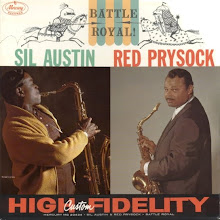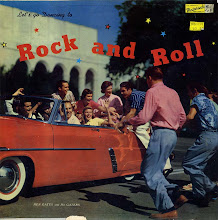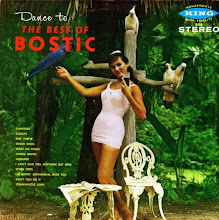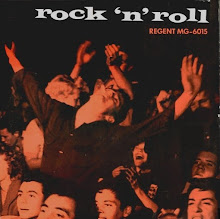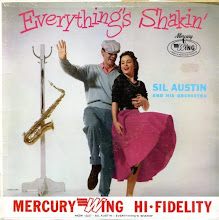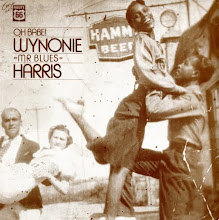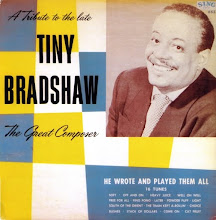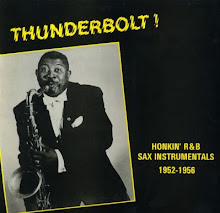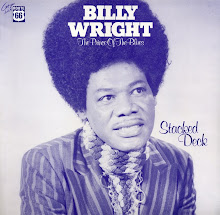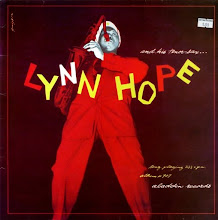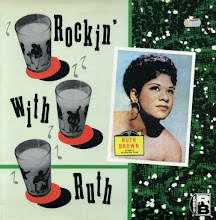Side One:
01. Cry Baby
02. Helpless
03. Dreamin' Blues
04. Lonely Blues
05. Strange Woman
06. Sunset To Dawn
07. Rockin' Blues
08. Fool's Gold
Side Two:
01. Feel Like Crying Again
02. Heartache Here I Come
03. Turn The Lights Down Low
04. It Can Never Happen Again
05. Just Another Flame
06. Help Me Blues
07. Walk My Blues Away
08. Three Magic Words
or
While Little Esther was very much the star of the successful Johnny Otis Orchestra's run of hits in 1950, her co-singer on many of the discs, Mel Walker, also enjoyed success as a solo singer on several Savoy releases.
Mel Walker (real name Melvin Lightsey) was born in Bloomburg, Texas in November 1929 and raised in East Los Angeles. His ability to sing in a style not dissimilar to that of Charles Brown was spotted at the Barrelhouse Club and he became a regular performer in the shows there. His recording debut with the Otis band, accompanied by The Bluenotes (The Robins) came in January 1950 on "Cry Baby."
His first real solo recording success was with "Rockin' Blues" which reached number 2 in the Billboard R&B chart in March 1951. This was the first of a triple whammy of big hits with "Gee Baby" (Savoy 777, not on this collection) also reaching number 2 at the beginning of June 1951, and "Sunset To Dawn" hitting number 10 in January 1952. However, "Sunset To Dawn" was the final chart entry in the astonishing run of success which the Otis band and vocalists had enjoyed in 1950-51 on Savoy.
In December 1951 the Johnny Otis band, including Mel, started recording for Mercury but their spell with the major label resulted in only one further chart success, a cover version of Floyd Dixon's "Call Operator 210" featuring a vocal by Mel which reached number 4 on the Billboard R&B chart in August 1952.
Johnny Otis left Mercury in mid 1952, but in October 1953 Mel recorded for the label under his own name. He had three singles from these sessions out in the first half of 1954. The session details show that the backing band included Don Johnson, George Washington, Preston Love, Lorenzo Holden, James Von Streeter, Devonia Williams, Pete Lewis and Leard Bell. In other words, a Johnny Otis line up. Ben Webster and Curtis Lowe, who had featured on some Otis recordings for Mercury back in '51, were also included in a reinforced tenor sax section while the band was directed by Melba Liston.
Mel's Mercury singles failed to make much of an impression. He was still touring with Otis and Floyd Dixon in the first half of 1954 and at some indeterminate time during that year he was on a session for Peacock with the Otis band. "I Won't Be Your Fool No More" (Peacock 1636) which came out in October 1954 was a good blues performance which had harmonica by Pete Lewis.
At some time in the second half of 1954 the wheels came off Mel's music career in spectacular fashion when he was arrested and jailed on drugs charges in Baltimore while on tour with Johnny Otis. In fact Mel was already a heroin addict before he joined the Otis band. Sadly several members of the Otis organisation, Mel, Little Esther, and Von Streeter, had drug addiction problems.
Otis lost touch with Mel while he was serving his sentence and the singer slipped off the music radar. In 1964 Mel Walker's body was found in a Los Angeles alleyway, apparent cause of death being a drugs overdose. The 30th April 1964 copy of the California Eagle had a brief but very grim report on its front page.
Original release details:
Cry Baby / I'm Not Falling In Love With You (Regent 1016). "Cry Baby" by Johnny Otis Orchestra, vocal by Mel Walker and the Bluenotes. "I'm Not Falling In Love With You" by Johnny Otis Quintette, vocal by Devonia. Released in February 1950.
Dreamin' Blues / Helpless (Regent 1018) - Mel Walker with Johnny Otis Orchestra. Released in May 1950.
Strange Woman / Lonely Blues (Regent 1022) - Johnny Otis Orchestra with Mel Walker. Released in September 1950.
Rockin' Blues / My Heart Tells Me (Savoy 766) - Johnny Otis Orch. with Mel Walker. Released in November 1950. #2 in Billboard best selling R&B records chart, 24th March 1951.
Sunset To Dawn / Feel Like Cryin' Again (Savoy 821) - Mel Walker with Johnny Otis Orch. Released in November 1951. #10 in Billboard best selling R&B records chart, 19th January, 1952.
Help Me Blues / Heartache Here I Come (Savoy 849) - Mel Walker. Released in June 1952.
"Three Magic Words" was first issued on the Savoy 2LP set "The Original Johnny Otis Show" (SJL 2230) in 1978.
"Fool's Gold," "Turn The Lights Down Low," "It Can Never Happen Again," "Just Another Flame," "Walk My Blues Away" aka ""Hand Me Down Blues" were first issued on the Savoy 2LP set "The Original Johnny Otis Show Volume II" (SJL 2252) in 1980.
Session details:
"Cry Baby" was recorded on January 11th, 1950, in Los Angeles. Personnel:
John Anderson (trumpet); Floyd Turnham (alto sax); Big Jay McNeely (tenor sax); Bobby McNeely (baritone sax); Devonia Williams (piano); Pete Lewis (guitar); Mario Delagarde (bass); Johnny Otis (drums); Mel Walker, The Bluenotes aka The Robins (vocals).
"Helpless" was recorded on February 23rd, 1950, in Los Angeles. Personnel:
Possibly Lorenzo Holden or James Von Streeter (tenor sax); Johnny Otis (vibes); Devonia Williams (piano); Pete Lewis (guitar); Mario Delagarde (bass); Leard Bell (drums); Mel Walker (vocal).
"Dreamin' Blues" was recorded on February 27th, 1950, in Los Angeles. Personnel:
Don Johnson, Lee Graves (trumpets); George Washington (trombone); Lorenzo Holden, James Von Streeter (tenor saxes); Walter Henry (alto and baritone saxes); Johnny Otis (vibes); Devonia Williams (piano); Pete Lewis (guitar); Mario Delagarde (bass); Leard Bell (drums); Mel Walker (vocals).
"Lonely Blues" and "Strange Woman" were recorded on June 20th, 1950, in Chicago. Personnel:
as February 27th session with Hosea Sapp (trumpet) added.
"Sunset To Dawn" was recorded on August 12th, 1950, in New York. Personnel:
as June 20th session.
"Rockin' Blues" was recorded on September 19th, 1950, in New York. Personnel:
as August 12th session but Hosea Sapp (trumpet) out.
"Fool's Gold," "Feel Like Cryin' Again," "Heartache Here I Come," "Turn The Lights Down Low," and "It Can Never Happen Again" were recorded on January 5th, 1951, in Los Angeles. Personnel:
Don Johnson (trumpet); George Washington (trombone); Walter Henry (alto sax); Lorenzo Holden, James Von Streeter (tenor saxes); Johnny Otis (vibes); Devonia Williams (piano); Pete Lewis (guitar); Mario Delagarde (bass); Leard Bell (drums); Mel Walker (vocals).
"Just Another Flame" was recorded on January 10th, 1951, in Los Angeles. Personnel:
as January 5th session.
"Help Me Blues," "Walk My Blues Away," and "Three Magic Words" were recorded on 19th March, 1951, in New York. Personnel:
As January 5th and January 10th sessions with addition of Earle Warren (alto sax).
Sources for this post include -
Bruyninckx Discography, Billboard, The Cash Box, Pete Welding's sleevenotes and interview with Johnny Otis for the Savoy 2LP set "The Original Johnny Otis Show Volume II," www.discogs.com , www.45worlds.com , and YouTube.
The sad end of Mel Walker is referred to in his Wikipedia article and is sourced from "Blues - A Regional Experience" by Bob Eagle and Eric S. LeBlanc. His arrest in Baltimore and later demise is also referenced in Pete Welding's sleevenotes for "The Original Johnny Otis Show Volume II."





























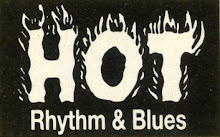
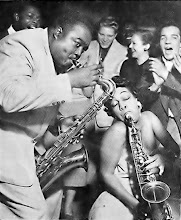





%2045%20-%201012A.png)
.jpg)

















